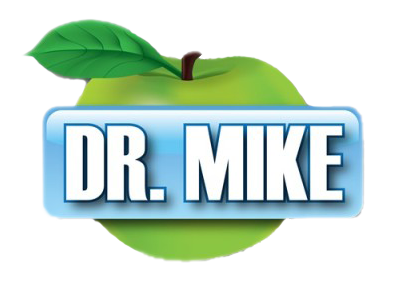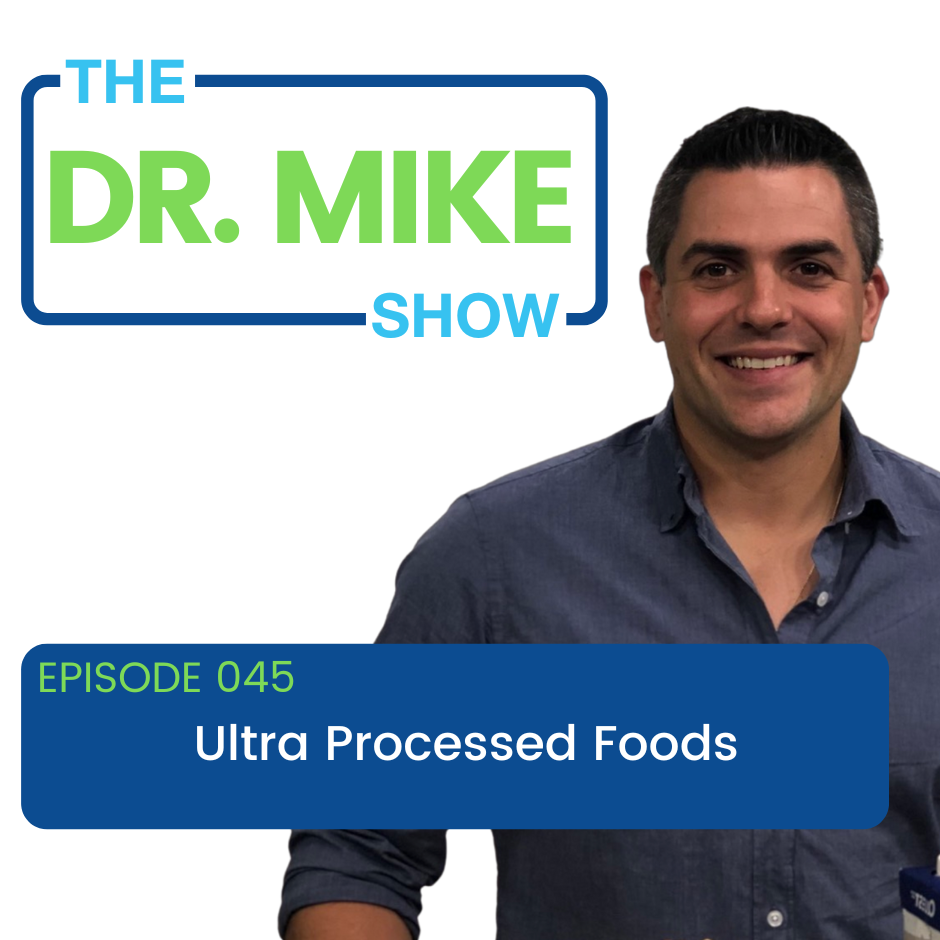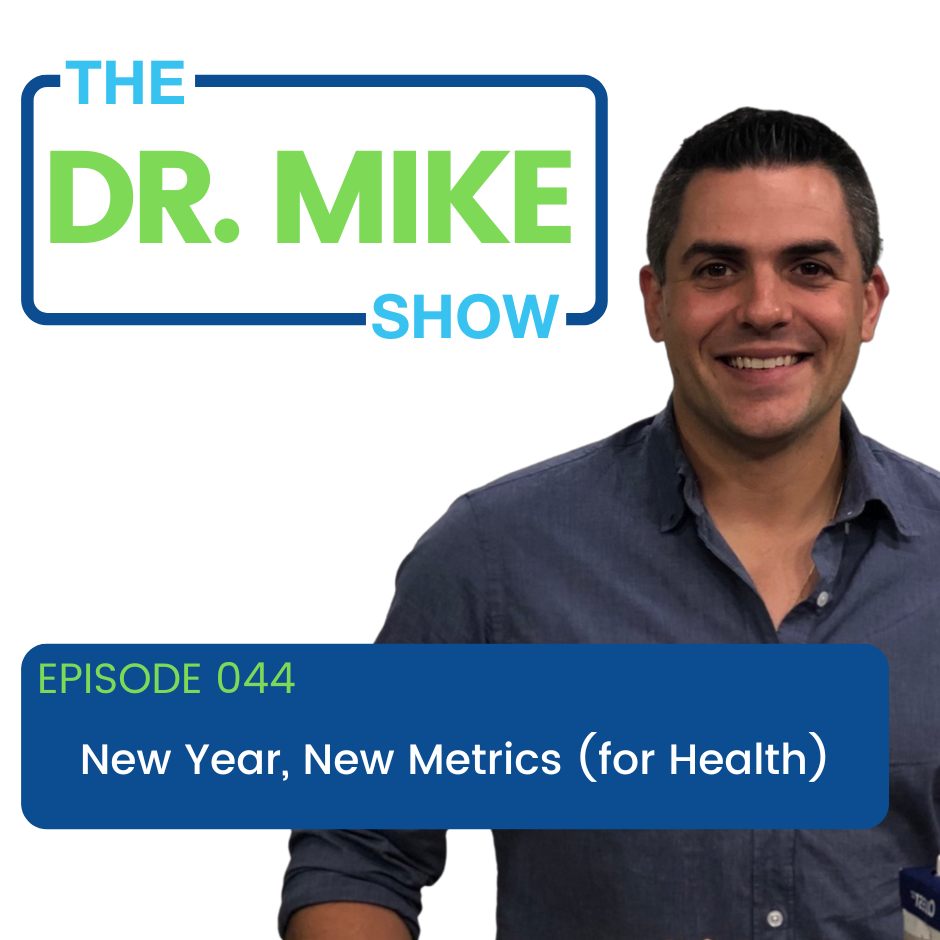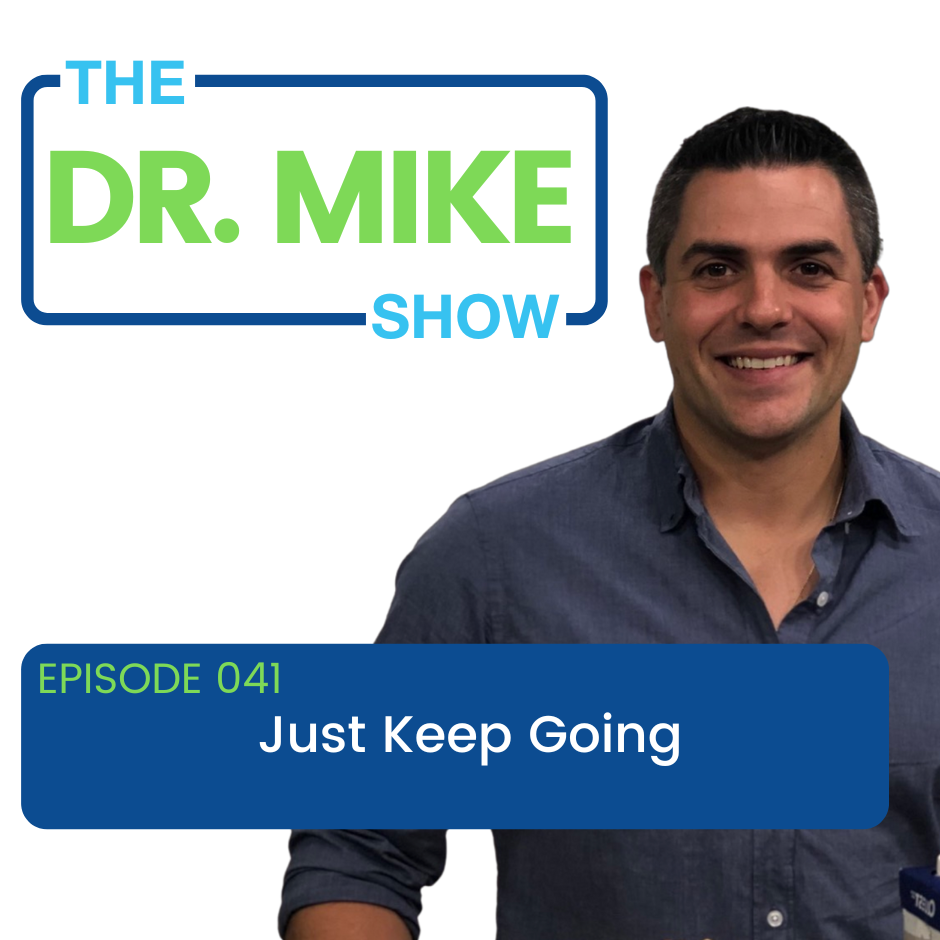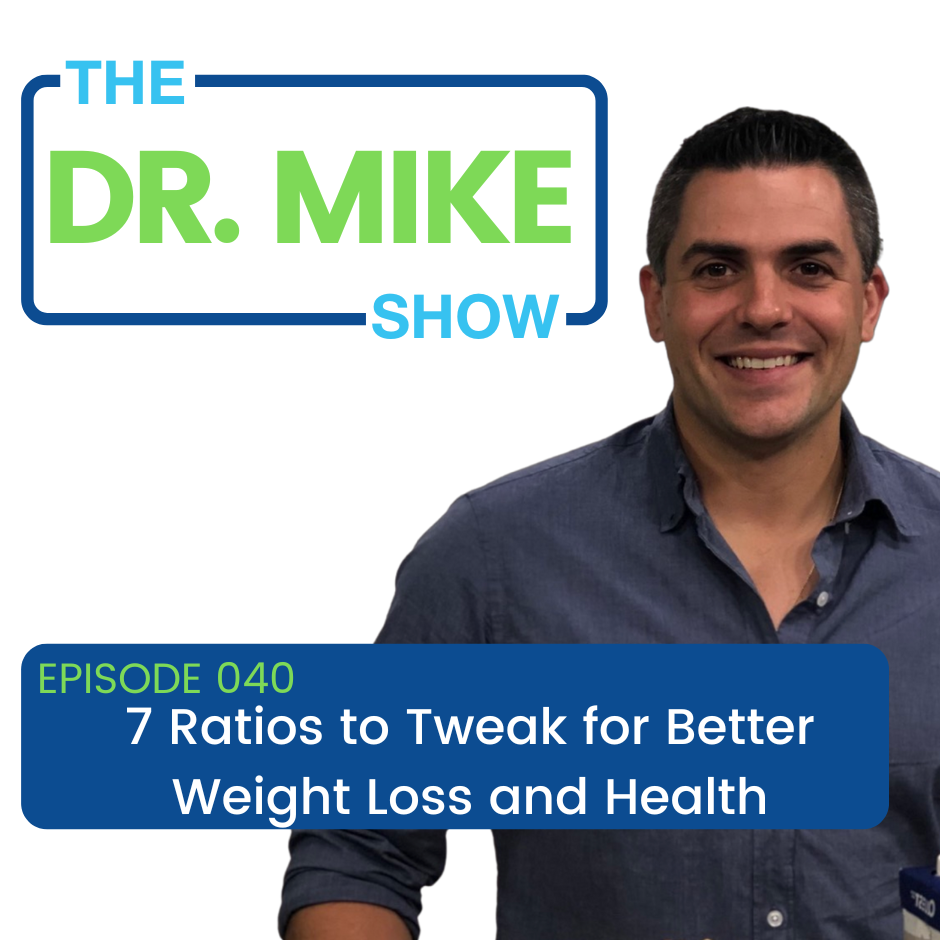The most common facebook messages I receive on my Dr. Mike page go something like this…..
I’m 35 years old, I lift weights 3 times a week, and my diet is pretty clean….but I can’t seem to lose any weight. How many calories should I be eating in order to lose weight.
There are two things wrong with this question. The first is that if I designed diets for everyone free on Facebook, my children would starve 🙂
The second piece with this question has to do with the reader’s search for the solution for his problem – calories.
Follow me on this….calories matter but they aren’t your biggest problem (Tweet This). NOT knowing how many calories you should be eating each day to lose weight isn’t why people have struggled losing weight. Let me explain.
I’m going to use the example of a 150lb woman who wants to lose weight but you can put in your body weight and follow along.
Take your body weight and multiply it by 10.
150 x 10 = 1500 calories.
This is approximately your basal metabolic rate (BMR), which is how many calories your body needs to function/survive if you just laid in bed all day. Now let’s assume you live a moderately active life and exercise 3-4 times per week. This means that we take your BMR and multiple it by an energy factor of 1.3-1.4
1500 x 1.3 = 1,950 calories
1500 x 1.4 = 2,100 calories
This means that you would need 1,950-2,100 calories to maintain your body weight.
I like to take the higher number (as it is always better is you can lose weight while eating more calories), subtract 250 calories to create a calorie deficit and you’re left with:
1850 calories.
This is how many calories that you need to lose weight. Does that help you? Probably not as you could have gotten that info via any calorie calculator online. The reason it doesn’t help is that because….The biggest problem is execution.
Executing your health eating plan is the hardest part. This is why diet plans fail….the biochemistry of your body doesn’t change that much but people’s adherence to the plan wanes over time.
Execution is what Naked Nutrition is all about at its most stripped down level. I want to help you close the gap between knowledge and execution.
Let me share with you another example that I frequently use when talking to dietitians, nurses, and physicians about why it is so important to work with clients on closing this gap.
Stop a random person on the street and ask them if they should eat more or less saturated fat if they wanted to reduce their risk of heart disease. I know that in reality the saturated fat story is a complex one but by and large the message to the general public for the last 25+ years has been the same. Ask 100 people and 99 of them will say that you should “eat less saturated fat.”
That has been the major nutrition public health message for my entire life. Look at the graph below.

This graph shows the saturated fat intake in America over the couple decades.
IT HASN’T CHANGED
Despite the message that we need to “eat less saturated fat” being pounded down our throats for my entire life nothing has changed.
Why?
Execution. The idea of reducing saturated fat is instantly revolting to people. It conjures up images of poached white fish and steamed broccoli. That is something that is not going to be consistently executed day in and day out with most people (and it doesn’t need to be).
If you aren’t executing then knowing how many calories you need to eat is worthless. It is like knowing you should save 10% of your paycheck for retirement and then going to spending that 10% on a new phone. Knowledge is worthless without action (Tweet This).
Putting Execution into Action
How can you starting putting an emphasis on execution? Here are 3 ways that you make your nutrition plan execution oriented for greater success.
1. Make It Tangible
If your execution items are not tangible you’ll be done before you start. This is why knowing your target calorie intake is not that useful initially. There is nothing tangible about eating 1850 calories. Make your execution item tangible something you can actually do – like eat protein at breakfast. This is a tangible thing that you can do everyday.
2. Start Simple & Small
Don’t try to revamp your entire diet starting on day one. Start small. Your life is busy and once your day gets started urgent items start to quickly pile up. I can tell you from experience that as your daily life begins to unfold, your nutritional priorities begin to lose their clout quickly. The needs of your boss, kids, and/or partner/spouse quickly trump your need to weigh and measure the perfect nutritionally sound lunch.
So don’t set yourself up for failure – start simple and small.
Develop an executable habit, drill it everyday, and soon enough it will be second nature like making a cup of coffee or brushing your teeth. Building on the example from above – eat protein at breakfast. This is a simple and small habit for your to execute. For most people breakfast is a high carbohydrate, low (maybe no) protein meal. Adding protein to a meal that you are already eating is not that big of a change. It is simple but it can have a significant impact. We’re not concern about exact grams or weights for now, just eat some protein at breakfast. Keep the portion between 1-2 decks of cards (or 1-2 of your palms).
3. Tweak What You Are Already Doing
The third key to putting execution into action and setting yourself up for success is to tweak something that you are already doing. Using our eat protein at breakfast example this is a good initial strategy to adopt if you are already eating breakfast because we’re essentially just optimizing a current habit/strategy. Let’s say you have (and really enjoy) granola in milk for breakfast. Take that and tweak it. Now you’ll have granola Greek yogurt with ½ a scoop of protein powder at breakfast. This will pump up the protein content of your current meal but your core habit (eating granola for breakfast) that is already hardwired into your brain remains intact (just optimized).
Here’s the thing about the above 3 tips….they seem simple (as they are) but when put into action they are powerful. A simple plan put into action with vigor and consistency is waaaaay better than a complex plan that is rarely used.
Do you use habits in your nutritional life? What do you think about this approach? LIKE the article and post a comment below – I want to hear from you.
[hr]
